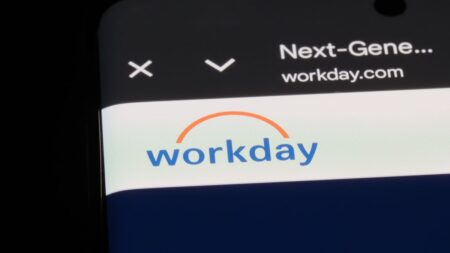While the relentless advance of digital-industrial technologies continues to dazzle, we would all do well to remember that the primary ingredient in digital transformation—regardless of industry—is optimizing the customer experience.
And in that context, here are some words to live by: “We always assume it’s the technology that causes disruption. It isn’t. It’s customers.”
That sage insight is from an expert on trends in the industrial world, Tony Uphoff. Tony is CEO of a data-platform company called Thomasnet.com and a monthly guest on my Cloud Wars Live podcast under the theme “Uphoff on Industry.” (Please check out the initial episode in that new series to hear more of our discussion on industrial innovation, customer-centric manufacturing, and Tony’s recent briefing to government leaders at the White House.)
With that thought in mind—that what drives digital transformation is not technology but rather customers and customer needs—I was intrigued to read yesterday’s blog post from Microsoft executive vice-president Judson Althoff. The piece is part of his quarterly series on customer trends around digital transformation.
Among the innovative customers in the manufacturing sector Althoff cited were Goodyear and the Renault-Nissan-Mitsubishi Alliance. Let’s take a look at how those classic industrial companies describe the rationale behind their efforts to overhaul their operations, their vision and their people for excellence in the digital economy.
Microsoft Manufacturing Customer: Goodyear
Despite its name, The Goodyear Tire & Rubber Company considers itself a part of the “ever-changing mobility industry.” CIO Sherry Neubert offered this perspective: “To deliver the most innovative products and services to our customers, we must empower our associates with the most innovative workplace tools. That’s why Microsoft 365 is right for us,” Neubert said in a blog post last month.
With 64,000 employees spread around the globe, Goodyear wanted workplace tools that could boost employee collaboration and agility while enhancing security.
In the same blog post, Goodyear’s head of knowledge management for research, development, engineering and quality highlighted the company’s dedication to “customer-driven innovation.”
“Customers’ needs define the products we develop,” said Goodyear’s Dean Testa, echoing the mindset of CIO Neubert.
That approach is essential in “helping us bring new products to market before the competition” does, Testa said.
And not just new products, but new ways of engaging with customers and thinking about how the fast-changing demands of those customers will require Goodyear to be able to think and execute at the speed of those customers.
From CIO Neubert: “Our goal is to deliver innovative solutions that keep the world moving. From owning the connection to the road today, to a future beyond tires, innovation lives and breathes throughout our organization.”
Neubert made the customer-first priority for digital transformation quite explicit in a related blog post from late last year: “The digital world is changing fast, and we must lead with digital innovation. For Goodyear, it’s all about how we can enable everyone in the company to put the customer at the center of everything we do and ensure that we maintain our leadership position in the new mobility ecosystem of tomorrow.”
Microsoft Manufacturing Customer: Renault-Nissan-Mitsubishi Alliance
Last month, this unique alliance of three major car companies (quick quiz: how much longer will “car companies” be the right description for what these companies do?) launched the Alliance Intelligent Cloud to deliver connected-vehicle services in about 200 markets around the world.
And look at the very first point they made in a blog post about that new cloud service: “Today we are deploying a vehicle connectivity platform that will transform the digital experience for customers of Renault, Nissan, and Mitsubishi,” said Kal Mos, global vice president of Alliance Connected Vehicles.
As the manufacturing sector—and the entire industrial landscape—accelerates into the digital world, it’s great to see the customer-centric thinking within these examples.
For Microsoft, these advances coincide with additional initiatives in the manufacturing sector that we’ve covered in Cloud Wars over the past couple of weeks: Inside SAP and Microsoft’s New Digital-Manufacturing Initiatives and Microsoft Partners with Nine Disruptive Startups to Target Manufacturing Sector.
Disclosure: at the time of this writing, Microsoft was a client of Evans Strategic Communications LLC.
Subscribe to the Cloud Wars Newsletter for in-depth analysis of the major cloud vendors from the perspective of business customers. It’s free, it’s exclusive, and it’s great!









